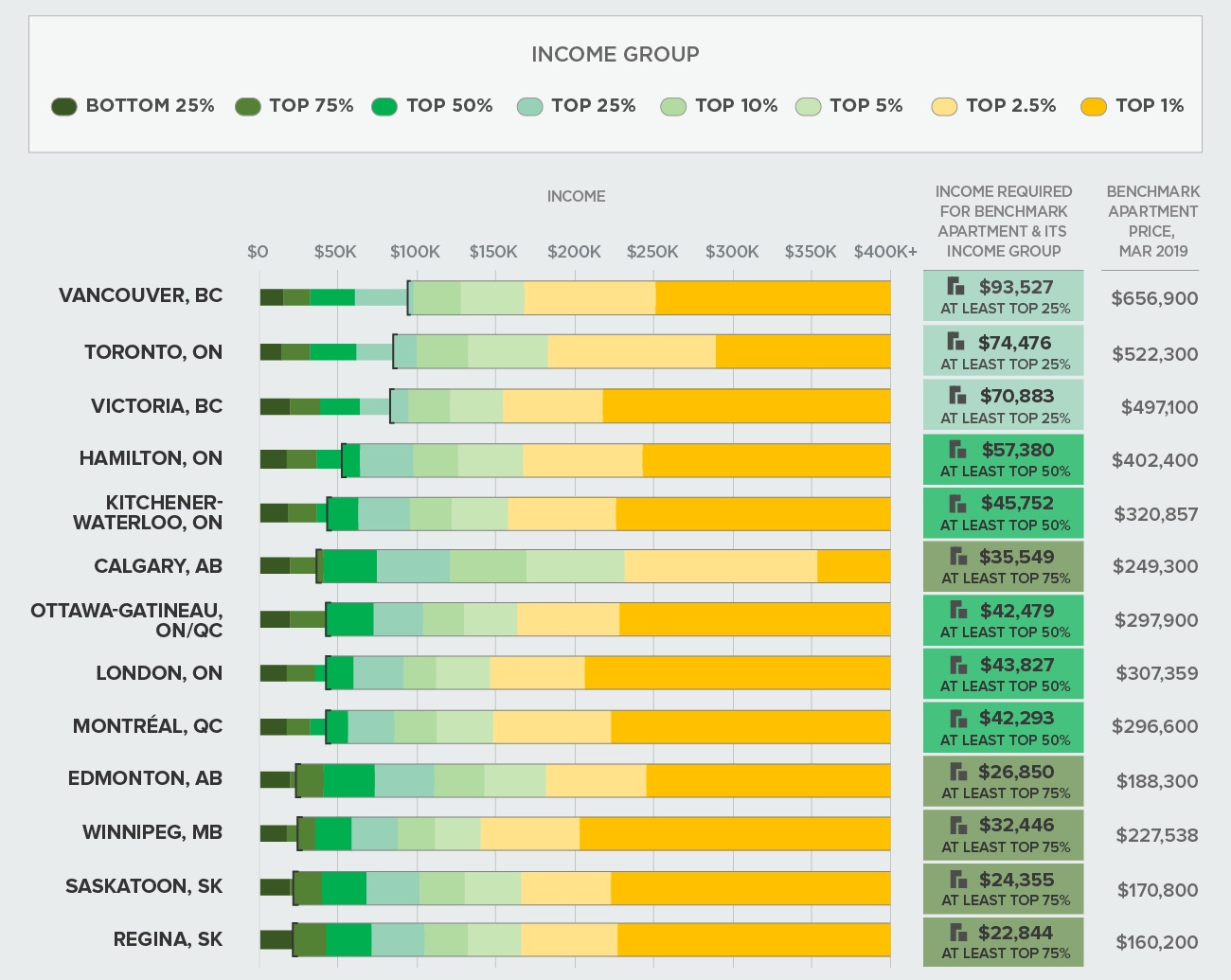Only Vancouver's top 2.5% income earners can afford a home: report

Even doctors and lawyers may not be able to afford Vancouver’s home prices: a new report paints yet another picture on the extent of how housing ownership in Vancouver is out of reach to not just lower- and middle-income earners but even high-income earners.
See also
- Vancouver ranked 4th most-expensive housing market in the world
- This is what 'affordable' looks like across Canada's housing market
- Opinion: City halls failing residents on housing affordability again and again
- Vancouver housing report shows progress in some areas, big gaps in others
- Metro Vancouver home sales sink to lowest level in 33 years
Data published today by real estate website Zoocasa shows Vancouver home buyers must be at least within the top 2.5% income tier — equivalent to an annual income of at least $205,475 — to be able to buy a single-family dwelling, based on the city’s current benchmark price of $1.441 million.
Even condominiums, which are typically deemed as entry-level housing, are out of reach to most Vancouver income earners, with an income of at least the top 25% — $93,527 per year — required to afford the benchmark apartment unit price of $656,900.
With its higher average incomes and lower benchmark housing prices, Toronto fares slightly better, coming in just behind Vancouver in the national ranking.
In Toronto, individuals within the top 10% income group can afford to buy a single-family dwelling at a benchmark price of $873,100. When it comes to apartments, Toronto income earners will have great difficulty with attaining the ownership of an apartment unit with a benchmark price of $522,300 if they are below the top 25% income group of at least $74,476 per year.
Victoria came in third place, with a top 10% income ($105,661) and top 25% income ($70,883) required to own a home and apartment, respectively. The benchmark price for a single-family dwelling in Victoria is $741,000, while the benchmark price for an apartment is $497,100.
In Calgary, where housing prices have been depressed from the continued effects of the recession, income earners must be within the top 50% ($66,677) to own a benchmark single-family dwelling price of $476,600.
Unlike the West Coast and Toronto, apartments in Calgary are relatively affordable for lower-income earners of $35,549, which is within the top 75% income group.
But single-family dwellings are still more affordable to more income earners in Montreal, where income earners within at least the top 50% ($53,472) can afford a benchmark single-family dwelling price of $375,000. However, when compared with Calgary, Montreal apartments are slightly less affordable: income earners must be at least within the top 50% ($42,293) to attain a benchmark apartment price of $296,600.
The major Canadian city that bottomed out in the list was Regina, where income earners must be within the top 75% ($39,342) to own a benchmark single-family dwelling price of $275,900 or a benchmark apartment unit price of $160,200.
Zoocasa’s findings are based on Statistics Canada income tax filings, benchmark home prices from real estate boards, and the minimum income required to qualify for a mortgage, assuming a 20% down payment, 3.75% mortgage rate, and 30-year amortization.
Income group required to buy a single-family dwelling

Income group required to buy a single-family dwelling in 2019. (Zoocasa)
Income group required to buy an apartment unit

Income group required to buy an apartment in 2019. (Zoocasa)
See also
- Vancouver ranked 4th most-expensive housing market in the world
- This is what 'affordable' looks like across Canada's housing market
- Opinion: City halls failing residents on housing affordability again and again
- Vancouver housing report shows progress in some areas, big gaps in others
- Metro Vancouver home sales sink to lowest level in 33 years

